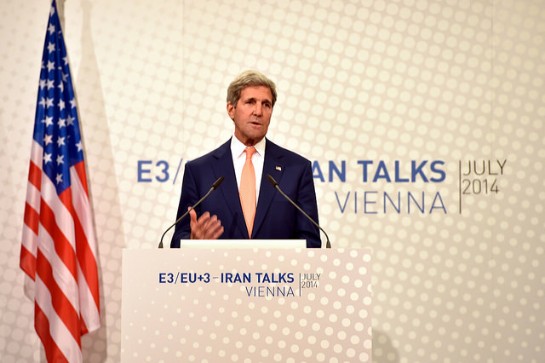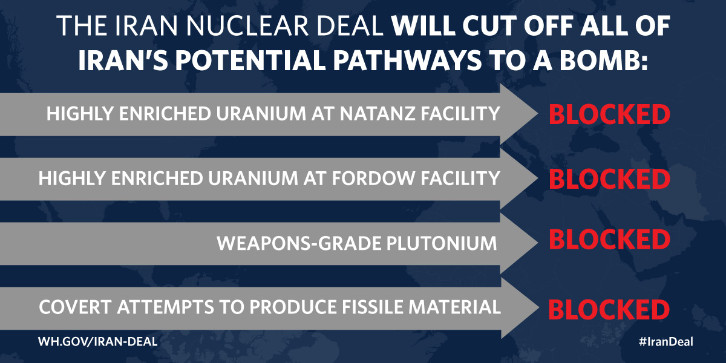 Secretary of State John Kerry in Vienna
Secretary of State John Kerry in Vienna
Understanding the Iran Nuclear Deal
On April 2nd the State Department released its Parameters for a Joint Comprehensive Plan of Action Regarding the Islamic Republic of Iran’s Nuclear Program. Under the tenets of this agreement Iran will not have enough material for a nuclear bomb, which requires roughly 1200kg of low-enriched uranium (LEU) to be further enriched to HEU, and the agreement will limit their stockpiles to 300kg. The number of their active centrifuges will be reduced by 2/3rds, meaning that even if they had the material to make a bomb (which they won’t) it would take at least a year for them to enrich enough uranium to weapon’s grade level (compared to their current capacity, which gives them a breakout time of 2-3 months).
In addition, Iran will cease all uranium enrichment at its Fordow facility for at least 15 years, will not have any fissile material at Fordow for the same duration. This means that using Fordow’s underground enrichment facilities to enrich uranium for a bomb will not be an option for Iran, and all uranium enrichment for energy purposes must be conducted at its facilities in Natanz.
Plutonium has been another major concern for this deal. Unlike uranium which must be enriched, plutonium is extracted from spent fuel that is used in a heavy water reactor—of which Iran possesses one in Arak. This reactor though will have its core removed, and be replaced with a core that is not capable of producing plutonium suitable for a nuclear weapon. Not only will there be no fissile material produced, but all spent fuel will be shipped out of the country, and Iran is agreeing not to conduct any fuel reprocessing research.
The last approach for Iran to get a bomb, the possibility of them secretly developing a bomb, is also closed off. Not only is there strict IAEA monitoring under the terms of this agreement, but the nature of how Iran must conduct its peaceful nuclear program under this deal will ensure that Iran couldn’t just cheat the deal in one area and acquire a bomb—they would need to cheat the deal in four or five major areas at least, all without getting caught, in order to create a bomb in stealth.
Iran will also be subjecting itself to the much stricter terms of the Additional Protocol of the NPT, which last forever, and will give the IAEA and international community an improved ability to monitor Iran’s nuclear program and take action in the case of violation.
Everything which we realistically expected Iran to offer with respect to their nuclear weapons program is on the table in the framework deal. So long as Iran is compliant with the agreement then they cannot build a nuclear weapon. The true security risk is in the rejection of this deal. This is a multilateral agreement, not a bilateral one, and the U.S. cannot simply back down from a deal which the rest of the world accepts lest we lose their cooperation.






